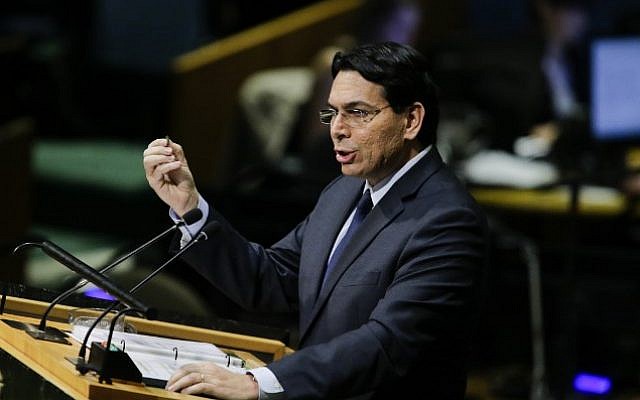Melanie Phillips: Straws in the wind or a dangerous delusion?
In Jerusalem this week, a touching film was screened about the Jews of Iraq. In Remember Baghdad, sensitively directed by British filmmaker Fiona Murphy, five Iraqi Jewish families look back at a scarcely imaginable time when Jews lived and prospered in Baghdad before persecution and massacres drove them out of the country.Sohrab Ahmari: Swedish Secularism Targets Jewish Homeschoolers
One of these exiles, London resident Edwin Shuker, has recently made the deeply quixotic gesture of buying a house in Erbil, the embattled Kurdish city. As he emotionally explains, he feels a duty to reestablish a connection, however small, with ancient Babylon, which 2,500 years ago was home to one of the most ancient Jewish communities in the world.
No less striking is the reaction to this film from Iraqis themselves.
Earlier this month, it was screened at the British Academy in London to a mainly Iraqi Muslim audience, including a senior delegation from the Iraqi Embassy.
According to David Dangoor, a prominent Iraqi Jewish exile who also lives in London, the Iraqi ambassador’s political adviser said at the screening that, with the defeat of ISIS and extremism, the country is intent on pushing tolerance and diversity. Other members of the audience, said Dangoor, made very positive comments about Iraqi Jews.
There are other straws in the wind.
Last December, the Iraq Society of London’s Imperial College held an Iraq Day sponsored by the Iraqi Embassy at which the ambassador insisted that Iraqi Jews should have a stand. Although this sported many books about their lost community and related subjects all saying “printed in Israel,” Dangoor says it was the most popular of all the displays and its books all sold out.
Some Iraqi exiles scoff at the suggestion that Iraqi Muslims are now warming toward the Jews and Israel. Nevertheless, the Arab Muslim world is changing in startling ways.
The firebombing of a synagogue in Gothenburg thrust Sweden’s anti-Semitism crisis into global headlines. For years, Swedish Jews have lived in fear of such violence, which is almost always perpetrated by the country’s large and ill-assimilated Muslim minority. According to a 2013 European Union study, four out of five Jews decline to publicly identify themselves as Jewish in Sweden–a damning indictment of a country that likes to portray itself as one of the Continent’s most tolerant.Caroline Glick: Israel’s learning disabled Right
Street-level thuggery isn’t the only source of the crisis. As if Molotov cocktails and mobs chanting “we will shoot the Jews” weren’t enough, Swedish Jews also find themselves pressed by the reigning securalism. The Swedish state is full of solicitude for Jewish citizens in the wake of anti-Semitic attacks. But it also seeks to limit their freedom to practice their faith.
Consider Rabbi Alexander Namdar and his six-year battle to homeschool the four youngest of his 11 children in Sweden. The rabbi and his wife, Leah, arrived in the country in 1991 as emissaries of the Chabad movement, and they founded its first outpost in Scandinavia. Their center now serves some 4,000 Jews in Gothenburg, offering religious education, holding prayer and holy-day activities, and promoting Jewish life and culture in the city.
When it came to educating their own children, the public system was out of the question. The public schools were religiously inadequate and, more important, physically unsafe for Jews. Private schools were no better. All schools, including “private” and religious schools, are government-funded in Sweden, and therefore required to accept all-comers. For the Namdars, then, homeschooling was the only way to ensure their school-age children’s security and the Jewish character of their education.
It is an iron rule of Israeli politics regularly disregarded by the political Right that left-wing parties govern from the Left, not the Right; center-left parties govern from the Left, not from the Center.
Despite the axiomatic nature of this rule, time after time, politicians and public figures on the Right have ignored it. Periodically, they make light of the distinction between governments run by their political camp and governments run by their leftist opponents.
To their credit, the converse is never true. Leftist politicians and activists never delude themselves that they are better off in the opposition. They always prefer governments led by their own camp to governments led by the Right.
For several years, this pathology unique to the political Right laid dormant – never entirely gone, but out of sight. Today, the Right’s pathological refusal to recognize that it is better off in charge than in the opposition is making a political comeback.
For the past month, a rapidly growing chorus of columnists and politicians – all of whom dwell on either the right-wing or left-wing margins of the nationalist camp – have decided to join the Left in its assault against Prime Minister Benjamin Netanyahu and call either directly or indirectly from his ouster from office.
The Left – like its rightist followers – characterizes its anti-Netanyahu campaign as an anti-corruption campaign.





































.jpg)

